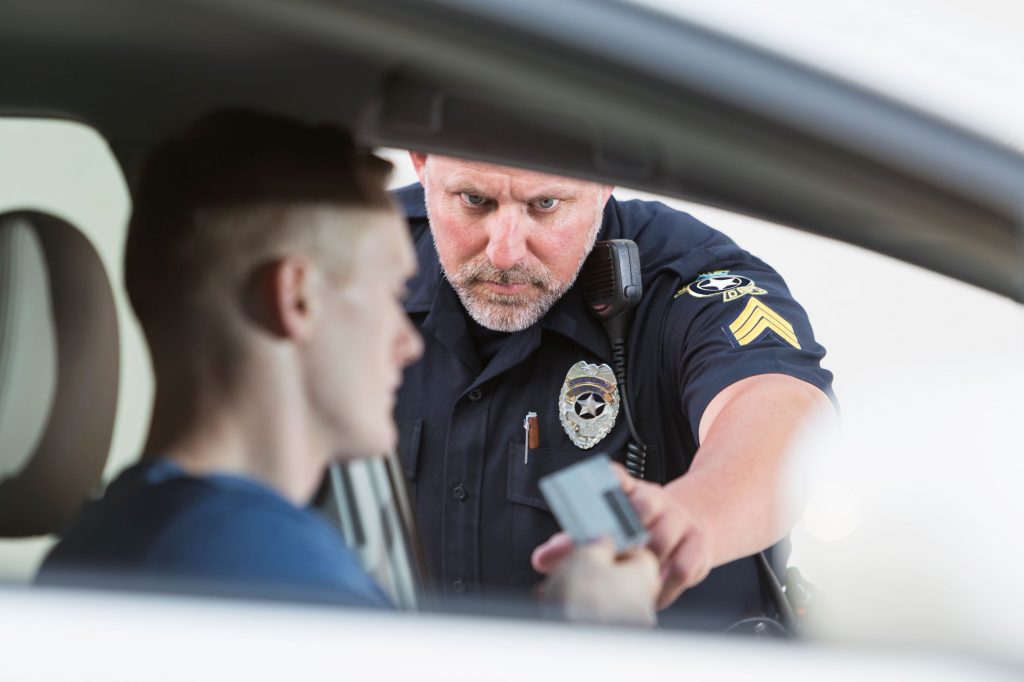What Rights Do You Have as a Citizen of Wyoming?

The United States Constitution guarantees certain rights for all citizens (and even non-citizens) of the USA, and further state laws in Wyoming provide additional rights regarding interactions with the law. It is essential that you understand your rights in Wyoming, particularly if you are facing criminal charges, have been stopped by the police, or are under investigation in a criminal matter. For specific questions, contact a knowledgeable criminal defense attorney, we offer answers to some general questions.
Your Rights When You’re Pulled Over by Law Enforcement
If you’re stopped by the police while driving, you have rights and responsibilities regarding your conduct. Police officers may try to intimidate you or make it look like they have a legal right to act even if they don’t, so knowledge of your rights is important.
When you’re stopped on the road by a police officer, you have two very important rights:
- The right to remain silent. Other than providing your license along with the documentation for your vehicle, you do not legally have to answer any questions. It is always advisable to cooperate with the police but should always keep your answers brief and never admit to anything.
- The right to refuse a search of your vehicle. A police officer may ask you if he can search your vehicle, and you have the right to refuse. If the officer believes there is enough evidence or information to warrant a search, he or she may, however, do it anyway.
With those rights, however, comes the responsibility to be calm, courteous, and cooperative with the police regarding any lawful request. Police officers may be attacked or even shot during a traffic stop and are wary of the dangers, so treat them with respect and move slowly to ensure they are confident you are not reaching for a weapon.
Is Wyoming a Stop-and-identify State?
Wyoming is one of the few states that do not have a stop-and-identify law. Lack of a stop-and-identify law means that unless you are driving or flying on a commercial airplane, you are not legally required to provide your identity to the police unless you are under arrest (at which point you still have the constitutional right to remain silent – which we advised that you exercise).
Your Rights After Being Arrested
After being arrested, a person who has been detained by law enforcement has specific rights (called Miranda Rights), which are based on the US Constitution. They include:
- The right to remain silent
- The right to be informed that anything you say can and will be used against you in a court of law
- The right to an attorney
- If you can’t afford an attorney, you still have the right to a public attorney to be supplied to you at no cost
In most cases, these rights are read to you before being arrested. In others, your Miranda rights are read to you before a criminal interrogation.
Another right that each person is called habeas corpus – which is legal recourse to unlawful or unjust detainment. Habeas corpus is Latin for “you shall have the body” and is used to mean a procedure in which you can challenge your detainment and, if it is proven unlawful, be released.
Your Rights Leading Up to Trial
Leading up to and through a trial, you have certain rights guaranteed by the Sixth Amendment of the US Constitution which include:
- The right to a public trial without unnecessary delay
- The right to a lawyer
- The right to an impartial jury
- The right to know who your accusers are
- The right to know the nature of the charges and evidence against you
An experienced criminal defense attorney can help make sure these rights are not violated and assist you in taking appropriate legal action if they are.
Is Wyoming An Extradition State?
All states can extradite prisoners in both directions – into and out of the state. However, extradition is a costly process and an arrest warrant will typically indicate whether the state is interested in extraditing if you’re have been arrested in another state. Wyoming will likely not be interested in extradition for a misdemeanor or nonviolent felony, but you may be extradited from anywhere else in the US if you are wanted for a more serious or violent crime.

Your FREE Case Strategy Session
On All Injury and Criminal Cases
Contact our office right now to speak to
someone who wants to help you.